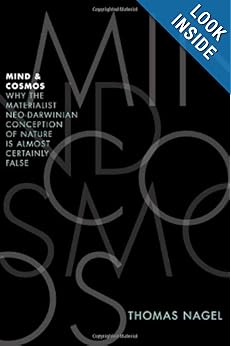Earlier discussed here. The most fulsome one is, of course, in New Scientist:
For me the attacks on science were unnecessary and ill-formed. “Where in the brain is metaphor happening?” asks Hilary. “Where is accountability and free will?” These don’t show up in a fMRI scan, she says. In fact metaphor may well show up in scans and so do all sorts of interesting aspects of our inner lives, including areas where we operate theory of mind, the ability to see another person’s point of view.
No one is saying that brain scans will explain consciousness, but I can’t understand those who seem to want to mock what neuroscientists are discovering. Some people are afraid that we lose something if we “reduce” aspects of our inner lives to blobs on a brain scan – in the case of metaphors to a location in the right inferior frontal gyrus. I think we gain something.
There’s lots more. Stoppard seems to channel the philosopher Thomas Nagel, (he mentions Nagel in the programme notes), who asserts that mental processes are different from physical ones, and so are not subject to natural selection. To many, this opens the door to the supernatural.
Like my dad would say, when you hear this kind of crap, reach for your horses in the dark.
That is, once “science” comes to mean some crackpot faith rather than assessment of facts, well, just get out.
Neuroscience has got nowhere with consciousness because it is operating on the wrong principles, as great physicists have said.
See also: Neuroscience tried wholly embracing naturalism, but then the brain got away
 Re Thomas Nagel, he is an atheist philosopher who bust the Darwin pen. If you do not know of him and do not understand why he is being slimed, read Mind & Cosmos.
Re Thomas Nagel, he is an atheist philosopher who bust the Darwin pen. If you do not know of him and do not understand why he is being slimed, read Mind & Cosmos.
Follow UD News at Twitter!
Search Uncommon Descent for similar topics, under the Donate button.